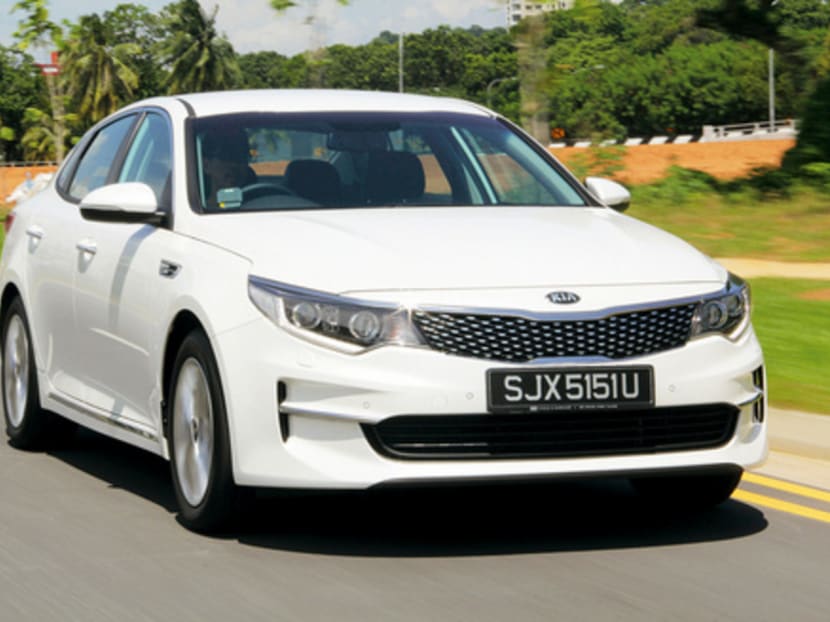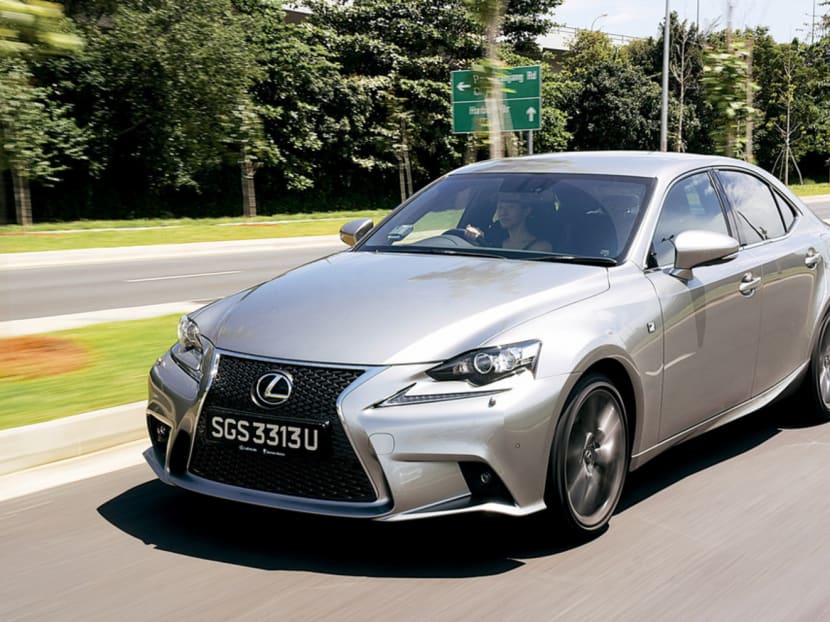Executive decisions
SINGAPORE — Why buy a big Kia when a little more money could get you, say, a smaller car from a Continental brand instead?


SINGAPORE — Why buy a big Kia when a little more money could get you, say, a smaller car from a Continental brand instead?
Here’s a plausible reason: Because the Koreans now make good cars. A quality survey conducted last year by research firm JD Power and Associates in America found that Kia’s new cars had fewer defects than those of any Japanese manufacturer.
It’s also silly to assume that the Koreans are brilliant at making phones and smart TVs, but are somehow inept when it comes to cars.
Besides, the new Kia Optima is worth a look purely by virtue of how much it offers for the money. For instance, did you know that it costs less than Volvo’s smallest car (the V40), but is the same size as its biggest sedan (the S80)?
FEATURE-RICH, WALLET-FRIENDLY
The Optima is big and comfortable inside, with plush seats and cabin materials that wouldn’t look out of place in a German car.
The Optima doesn’t come with GPS navigation, and the front passenger still has to use muscle power to adjust the seat, but it’s otherwise comprehensively equipped.
Bluetooth pairing with your phone is there, the wipers and headlamps are automatic, and you push buttons to unlock the doors and start the engine, instead of fumbling with a key.
The driver’s seat even slides back automatically to ease your entry and exit, like it does in a Lexus.
It might look little changed from the last Optima, but the new model is substantially different under the skin.
BENEATH THE SHEET METAL
It has 150-per-cent more high-strength steel in the body than before, and the suspension has been redesigned to improve comfort. The Kia takes bumps with grace, and it’s actually quite a treat around corners, with good feedback from the steering system and the sort of surefootedness that’s great for the driver’s confidence.
The chassis is so well-sorted, it leaves you wishing for a bit more from the engine. The Optima’s 2.0-litre unit is a carryover from the previous model, and while it’s a decently pokey thing, you can’t help but wonder whether a bit of turbo power wouldn’t turn the Kia into a sort of Audi-hunter.
Instead, the engine is at its best when prodded gently, so that’s how you tend to drive the Optima. In those circumstances, it feels like a relaxing car that you could cruise in all day.
After a few days with the car, I found myself liking it quite a bit for the comfort it offers, and for the way that it feels more expensive than it is. So much so that I wanted to trade friendly nods with drivers of the previous Optima whenever I encountered one.
It felt like we were members of a secret club. Namely, the club that asks questions like: Why buy a smaller car from a Continental brand when you can have a big Kia?
KIA OPTIMA K5 2.0L
Engine: 1,999cc, in-line four, 163hp, 196Nm
Performance: 208kmh, 0-100kmh: 10.5s, 7.8L/100km, 182g/km CO2
Price: From S$112,999 with COE
On Sale: Now
PROS: Comfortable, spacious and well-sorted
CONS: Could do with a turbo engine
SINGAPORE — The Hyundai Group (which owns Kia and Hyundai) may have made big rumblings towards the luxury segment with its Genesis sedan — now its own sub-brand — but it has some way to go to match the likes of Lexus.
Japan’s leading luxury car maker is itself in the process of renewal. In the past decade, its cars have gotten sexier, as a result of a radical new design language, and racier, with offerings like the 570bhp GS F high performance sedan, launched here in January at the Singapore Motorshow.
ADOPTING THE FORCE
In its 30-year history, Lexus has always relied on non-turbocharged engines to deliver the brand’s signature blend of refinement and smooth, turbine-like power.
So it’s big news that the first Lexus turbocharged engine, which appeared in the NX and RX sports utility vehicles earlier, is now under the bonnet of the IS sedan.
On paper, it’s another classic case for downsizing — the practice of using a smaller capacity turbocharged engine for better overall performance.
Compared to the 2.5-litre V6 it replaces, the 2.0-litre turbo engine is 34bhp and 100Nm stronger, while also cutting fuel consumption from 9.2L/100km to a modern 7.5L/100km.
The IS sedan is the same beast it was before: It packs a lot of visual snarl, in a uniquely Japanese way, but with a brilliant chassis that could clearly take more power, especially in F Sport trim with its adaptive suspension setup.
REFINED POWER
From behind the wheel, you won’t be able to tell immediately, though. The turbo engine is among the smoothest we’ve ever tried — it’s a true bit of Lexus tech in that sense, and the IS, like all its stablemates, cocoons you from the outside world.
Switchable modes are standard on the IS, and the F Sport model gets a Sport+ setting that dials up the suspension, too.
Here, the car really starts to come alive and it’s clear the extra grunt from the engine is a perfect match, delivering more driver smiles more quickly, thanks to the ability to call up punch in a snap, something the old V6 couldn’t do.
In fact you’ll have to be careful, since the IS hides the amount of speed it gains well and it doesn’t feel like you’re going quickly until you glance at the speedometer. The extra power masks, but doesn’t entirely hide, one issue with the IS though — it’s heavy, and as a result, it’s not as super-efficient as some of its German competitors can be.
Yet it’s rare that a car is able to get exactly what it needs within its lifespan — the IS getting more muscle is exactly what the doctor ordered. That it does forced induction in an entirely natural, un-forced way is just the icing on the cake.
LEXUS IS TURBO F SPORT
Engine: 1,998cc, in-line four, 241hp, 350Nm
Performance: 230kmh, 0-100kmh: 7.0s, 7.5L/100km, 177g/km CO2
Price: From S$217,000 with COE
On Sale: Now
PROS: More power delivers tons of driver smiles, smoothly
CONS: It’s still a weighty car





